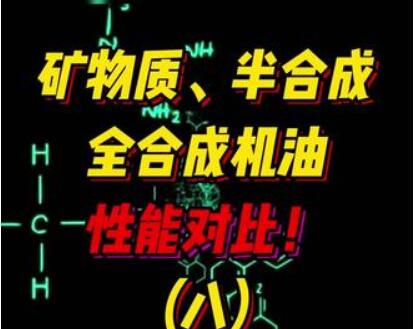
In terms of oil selection, synthetic engine oil is indeed superior to traditional mineral oil in most scenarios. Here are its five core advantages and rational selection suggestions:
1、 Molecular level performance advantages
Artificially synthesized precision structures
The molecules manufactured through chemical synthesis process are arranged neatly, and their viscosity index is naturally higher than that of mineral oil (such as PAO base oil, which has a viscosity index of 130-160, and mineral oil, which is only about 90), keeping the oil film stable and lubricated in the range of -40 ℃~150 ℃.
Additive system upgrade
Synthetic oil can carry more high-performance additives (such as organic molybdenum friction reducers and borate cleaners), and its additive consumption rate is 30-50% slower than mineral oil, significantly improving its long-term effectiveness.
2、 Comparison of measured data
Low temperature start-up wear: At -30 ℃, the flow time of 5W-30 synthetic oil is 4 times faster than that of mineral oil of the same grade (ASTM D5293 test)
High temperature sediment control: After 100 hours of continuous operation at 150 ℃, synthetic oil reduces piston sediment by 60% compared to mineral oil (Sequence IIIG engine test)
3、 Economic reassessment
Although the unit price is 30-50% higher, considering all factors:
The oil change cycle is extended by 2-3 times (synthetic oil can generally reach 15000-20000 kilometers)
Fuel efficiency improvement of 2-5% (EPA test data shows)
Engine overhaul mileage can be extended by 80000 to 100000 kilometers
The total lifecycle cost is actually reduced by about 25%
4、 Suggested classification for applicable scenarios
scene
Recommended choices
Reason Description
Turbocharged/high-performance engines require fully synthetic engine oil to handle turbo temperatures of ≥ 200 ℃
0W series synthetic oil ensures cold start fluidity in extremely cold regions (<-20 ℃)
Old vehicles (>15 years old) with high viscosity mineral oil to avoid leakage caused by synthetic oil cleaning power
5、 Technological development trends
The global synthetic oil market share has reached 67% in 2023 (data source: Lubrizol), with:
Implementation of National VI B/Euro 7 emission standards
Precision of engine clearance (now up to 3-5 μ m)
The fluctuation of oil temperature in hybrid models intensifies
Synthetic oil is becoming an inevitable choice for technological development.
Rational choice suggestion: For car models produced after 2015, especially those with direct injection, turbocharging, or hybrid systems, synthetic engine oil is the optimal solution. But older naturally aspirated engines can choose semi synthetic oil to balance costs at their discretion. Ultimately, manufacturer certification standards such as API SP/ACEA C5 should be strictly followed, rather than simply comparing base oil types.